
- Published on April 3, 2015
- // Updated on Jul 21, 2018
- // in England, Experiences
- // This post may contain affiliate links, read our disclaimer.
Who doesn’t love a mysterious story about people and their lives long passed. When people asked me what I wanted to study when I was older, I would always answer archaeologist. The intriguing stories from Egyptians, Greek and Romans, and later the Aztec and native Indians, enthralled me beyond measure. I devoured books, both fiction and non-fiction, about civilizations long extinct and dreamed about living amongst ancient heroes and wished that I could, just for one day, experience life in a different world.
My dreams for the future changed as I grew older and realised I had other passions more suitable to me. But my infatuation with anything history never truly disappeared. It’s one of the reasons why I love travelling. I’m able to immerse myself in the history of a place while walking around Roman or Greek ruins. I love imagining who had walked the same place as me 1000’s of years before I did. What did they wear? What jobs did they do? What did their house look like? Did they have a husband, wife? Did they argue? What secrets did they keep from each other? It’s something I kept wondering while walking the streets of Pompeii. The city’s preserved state makes it easy to imagine life in Roman times.
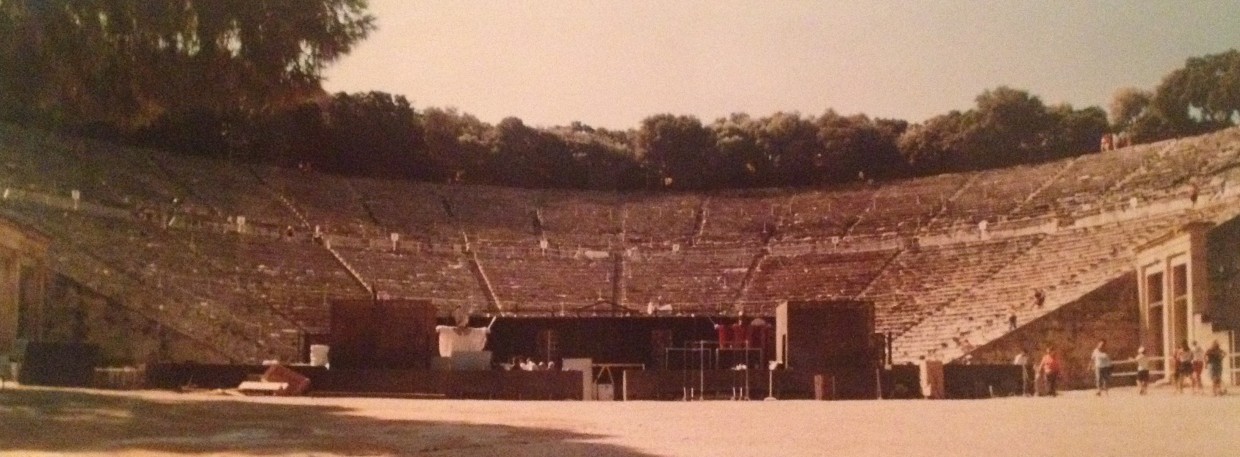
[one-half-first]

[/one-half-first]
[one-half]
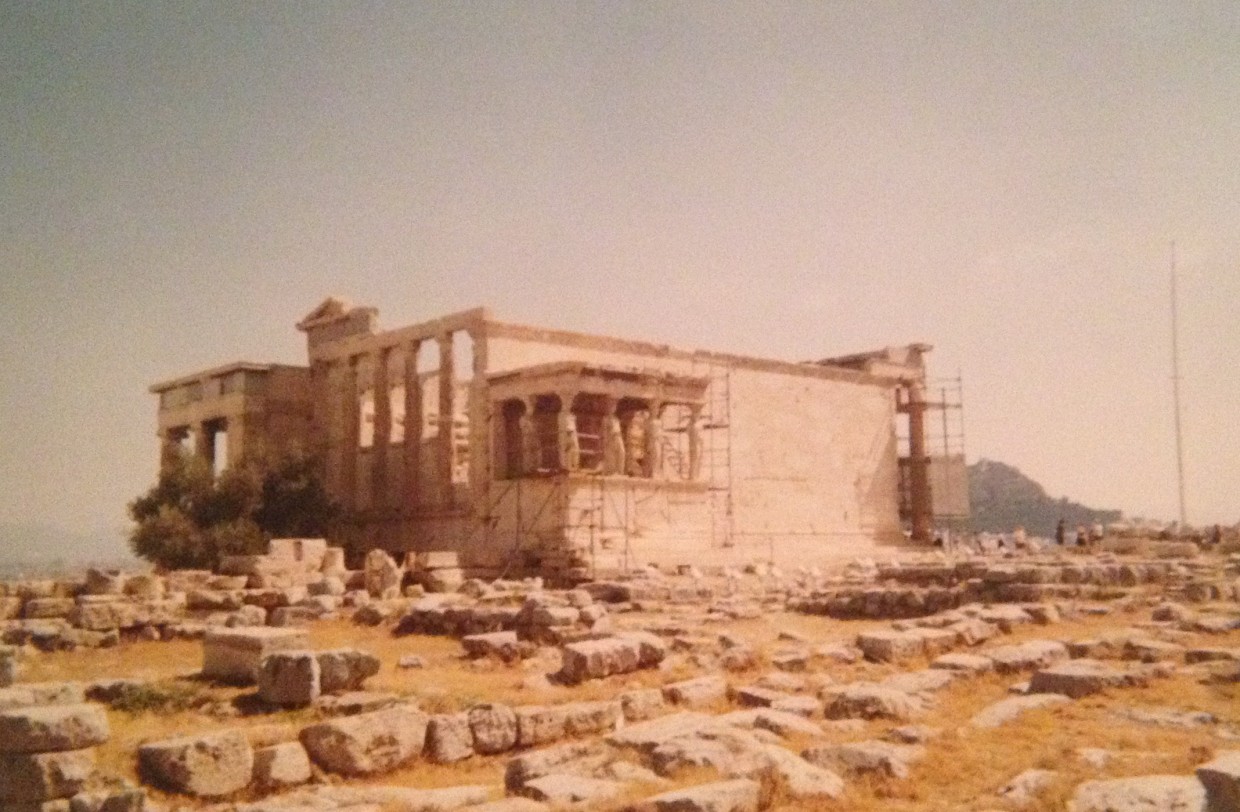
[/one-half]
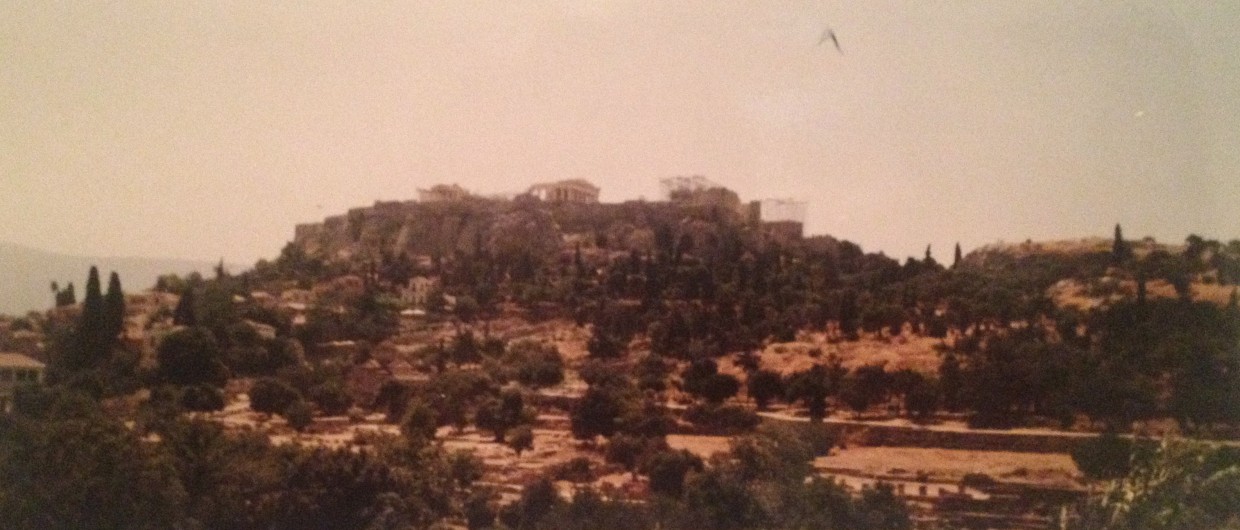
A few of my images taken in Greece in 2004
Archaeology jumped back on my radar after going through a few MOOC’s on Coursera.org. Moocs are Massive Open Online Courses, free courses you can take online. They’ve become very popular over the past few years, and I’ve taken a few history and archaeology courses through them. It sparked my interest again, and I started looking into earning a degree through distance learning.
I soon realised if I wanted an actual bachelor degree, it was going to cost me quite a bit of money. I came across Oxford department for continuing education where you could take separate modules. I decided to enrol in ‘Archaeology in practice’, a introductory course in archaeology.
I also decided to gain some practical experience, and join an actual archaeological dig. To my surprise, you don’t need any previous experience, or degree to join a dig. You can easily join a dig as a volunteer. I found numerous opportunities around the world, but I decided to join a dig in England.
Joining A Dig
Joining an archaeological dig as a volunteer doesn’t need to cost money, but most digs do require you to pay a fee. Depending on which dig you join, the fee goes towards your training, equipment, accommodation etc…
As a volunteer, you do not need any previous experience or a degree in archaeology or an equivalent subject. All you need is an interest in history and archaeology, and enthusiasm!
I applied to join the Durotriges Dig in Dorset through Bournemouth University. I had studied at Bournemouth University, and as an alumni, I received a discount on the fee. The University recommended booking at least 2 weeks, but because of work commitments, I could only book 1 week. I managed to convince my sister to come with me, and the day before the start of the dig, we made our way to Bournemouth.
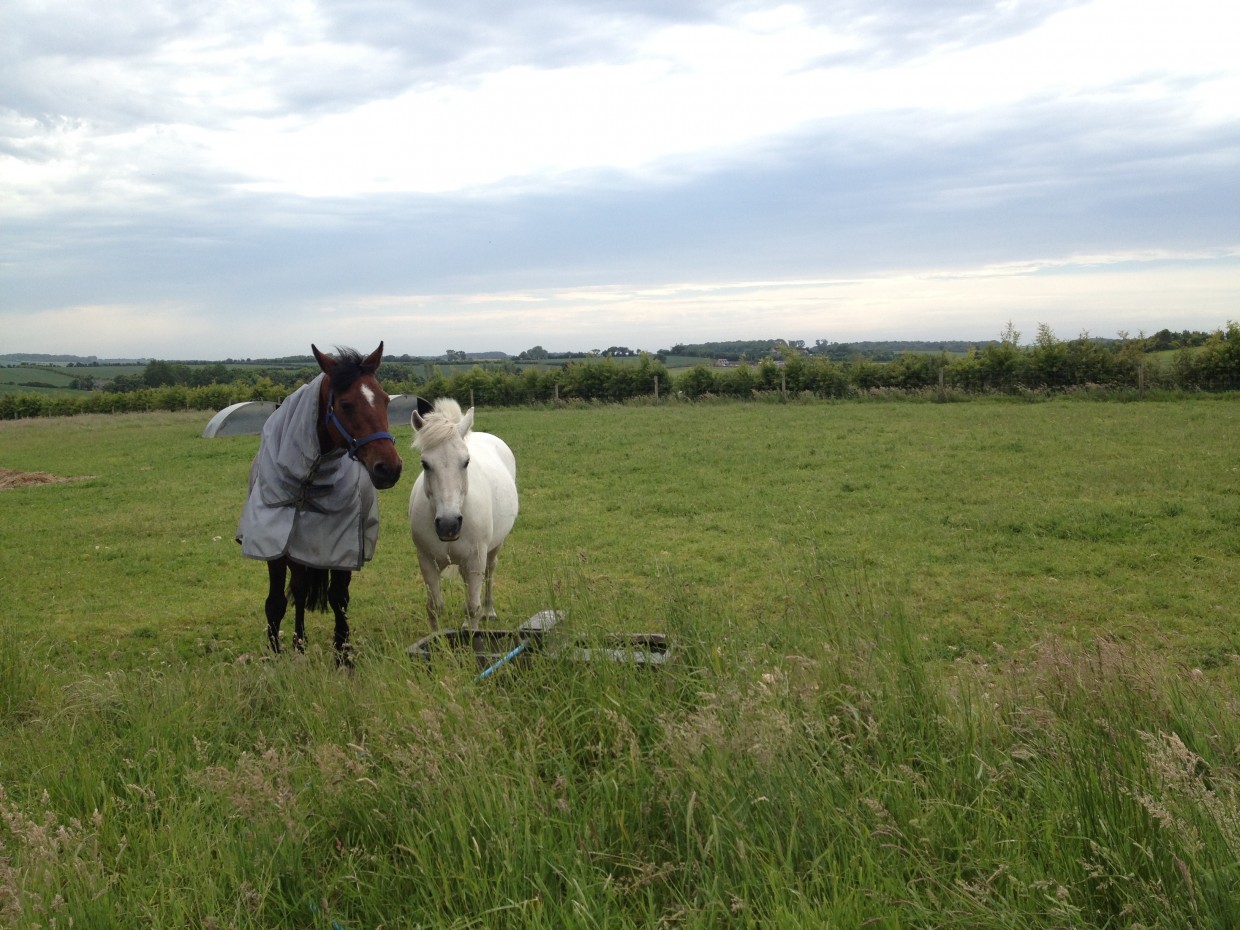
Our Accommodation
I managed to book a room on the farm right next to the dig site, where we would stay for 5 nights. We bought a few snacks and ingredients for our evening meals, before heading to the farm, which was an hour away from Bournemouth.
The farmhouse was impressive, and the kitchen is every housewives dream. We received a warm welcome from the owners, and we were shown around the house and our room. The room occupied the whole attic and we had a great view from our small window over the surrounding slightly hilly farmlands.
The contrast between my life in London and the farm house was huge. I suddenly found myself in a mansion, surrounded by fields as far as my eyes could see. The only sounds being birds, horses and the barking of the resident dogs. I found myself at a loss because of the sudden tranquillity of my surroundings.
First Day On The Dig Site
I was slightly nervous, as I always am when joining a group of strangers, so I was very grateful my sister had decided to join me on the dig. There were also 2 men staying in a tent on the farm fields, who joined us on our 15 min walk to the dig site.
As this was a University dig, there were quite a few University students, trying to gain valuable experience for their course. All the volunteers were separated, and I was happy to see there were people of all ages. We were introduced to the site and its history, showing us the finds from previous years and what they’ve found so far this year. They outlined the plan for this season, and the speculations of the numerous trenches they were digging.
After the introduction, we were shown to our own little section we would have to dig for the next week.
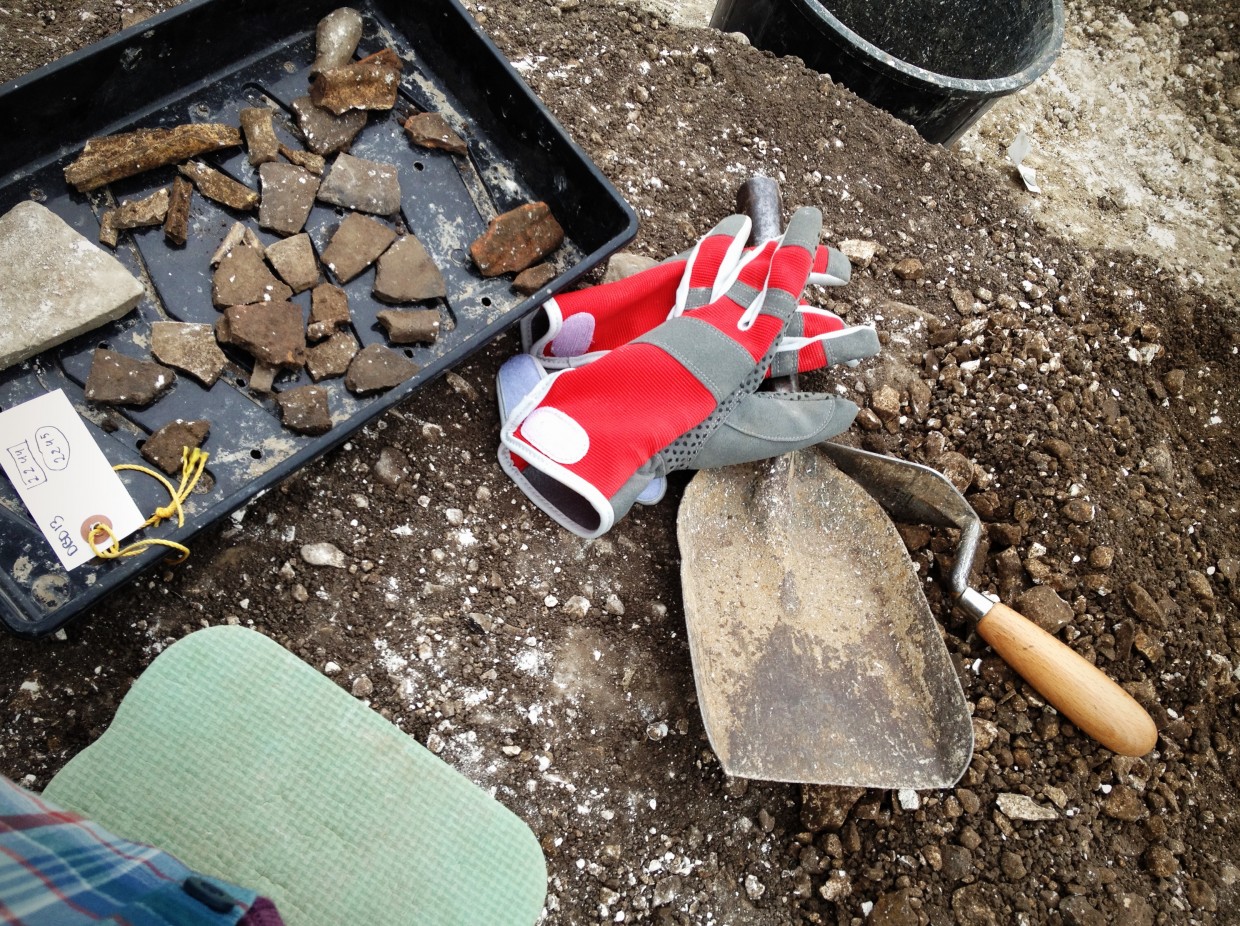
We were given a bucket, a tray and a trowel. To protect our knees, we used a padded knee protector. Layer by layer, we troweled our way through the dirt. The dirt was put in the bucket and as soon as the bucket was full, we carried it to the nearby ‘hill’ where all buckets were emptied. When we found something significant, like a piece of pottery, a nail or a bone, we deposited the item in the tray. If the item was rare, such as a bone nail, a glass bead or a painted piece of pottery, we had to bring it straight to the supervisor to be washed and documented.
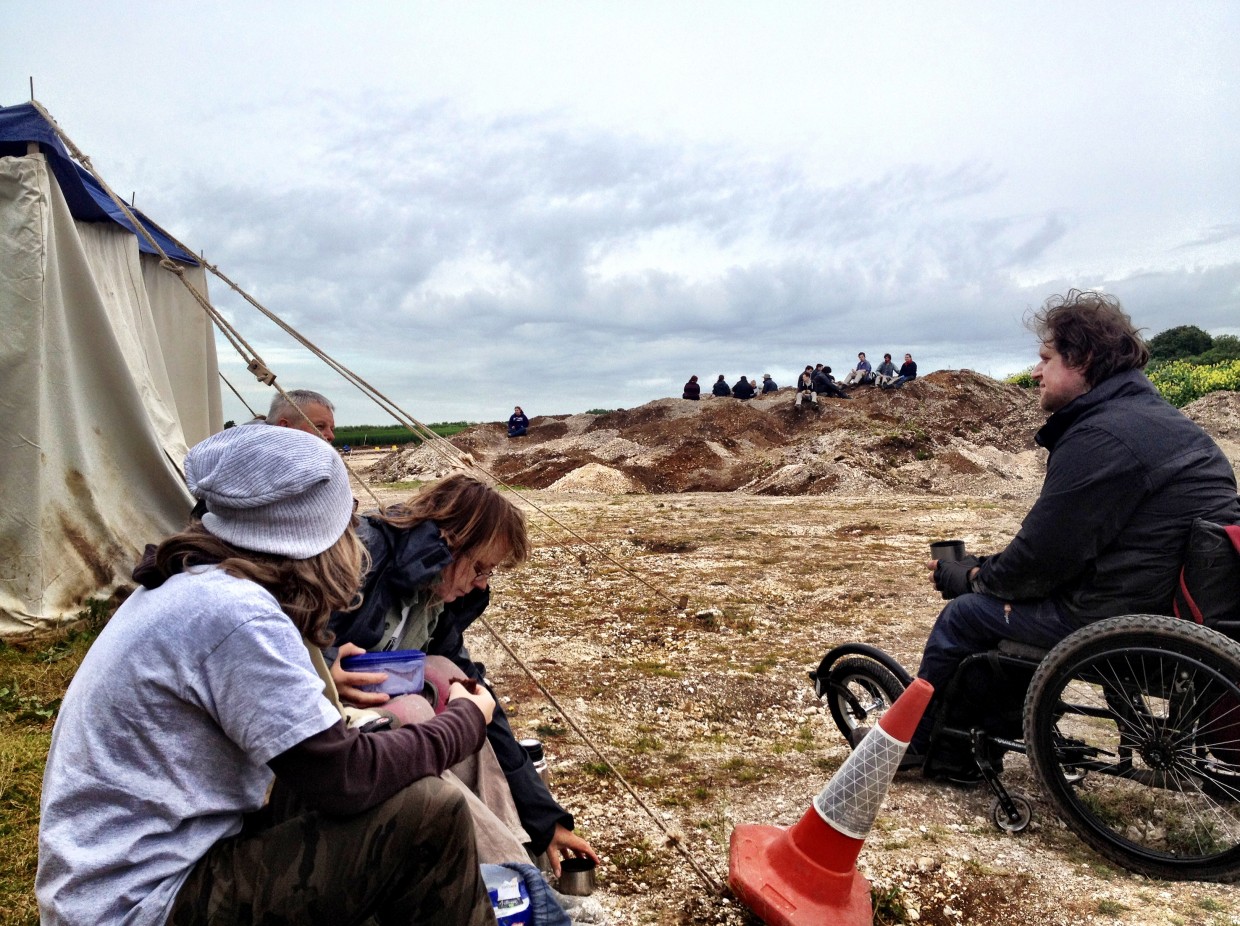
At the start, the volunteers were slow, and I admired with jealous eyes how the university students were breezing through their trench without missing any items or breaking anything. We as noobies, were too scared to miss any valuable items, so we carefully troweled the layers of our trench.
After the first day, my sister and I realised our hands were not going to last another day. The trowel was digging into our hands as we were working, so we made our way to the nearest garden store and bought garden gloves. (Thanks to one of the men at the camp site who had a car!).
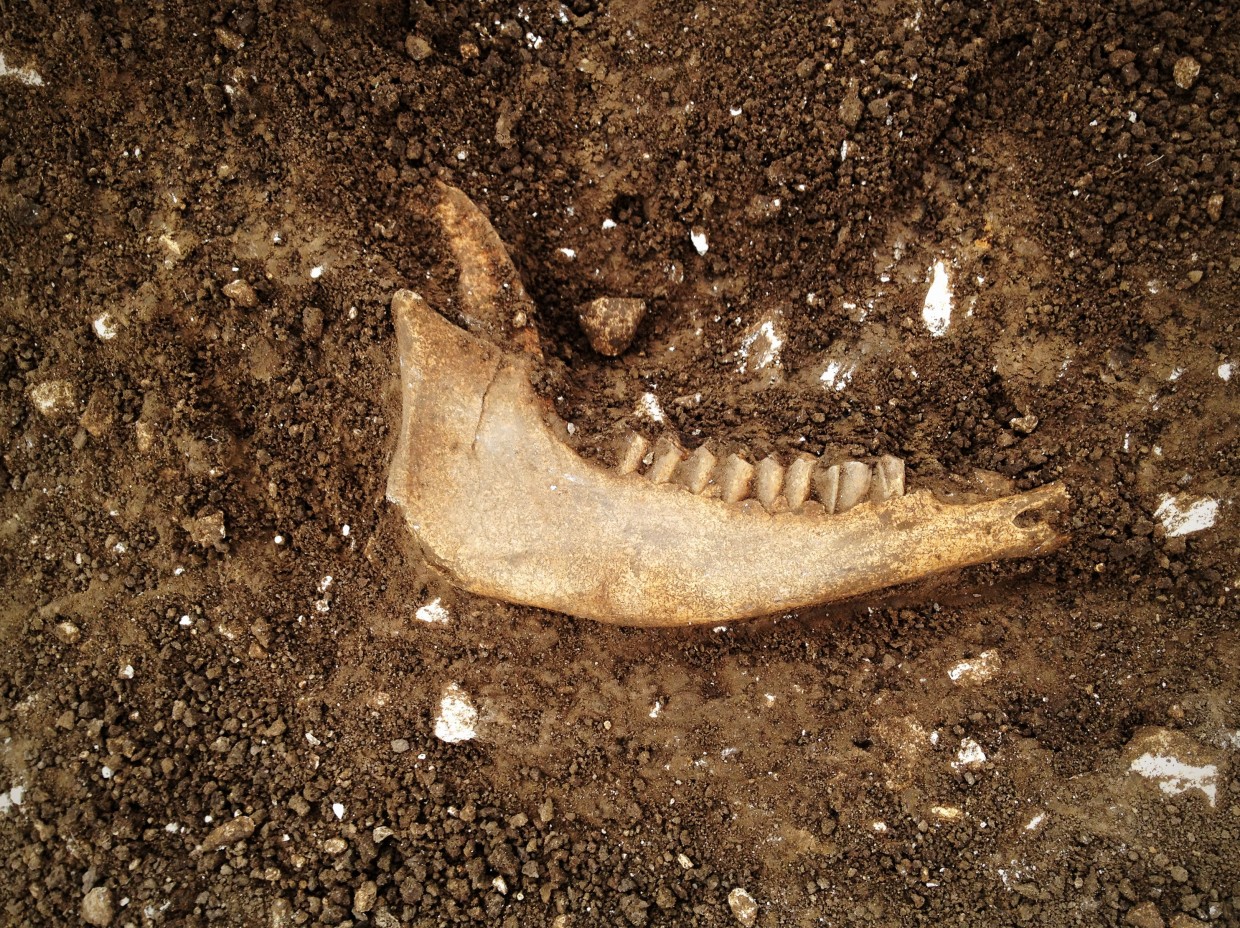
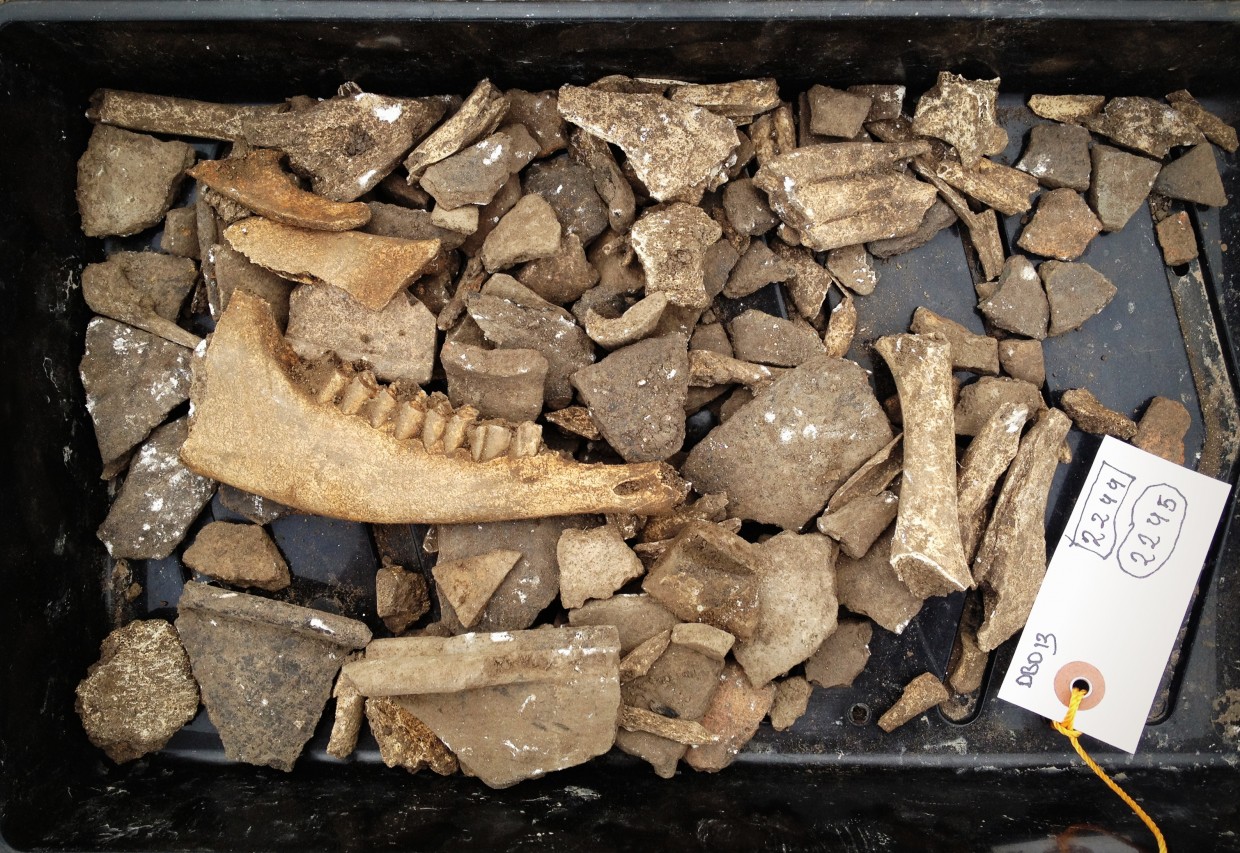
Throughout the week, we managed to work faster, but I failed to completely trowel my trench. I did find some great finds, such as a nail bone, a glass bead, a pretty piece of pottery and a mandable. Apart from digging, we were also asked to work at some other sites. My sister had to sift through finds and wash them, and we went to a nearby field to do some geophysical surveying to find out if there was anything of interest in the fields.
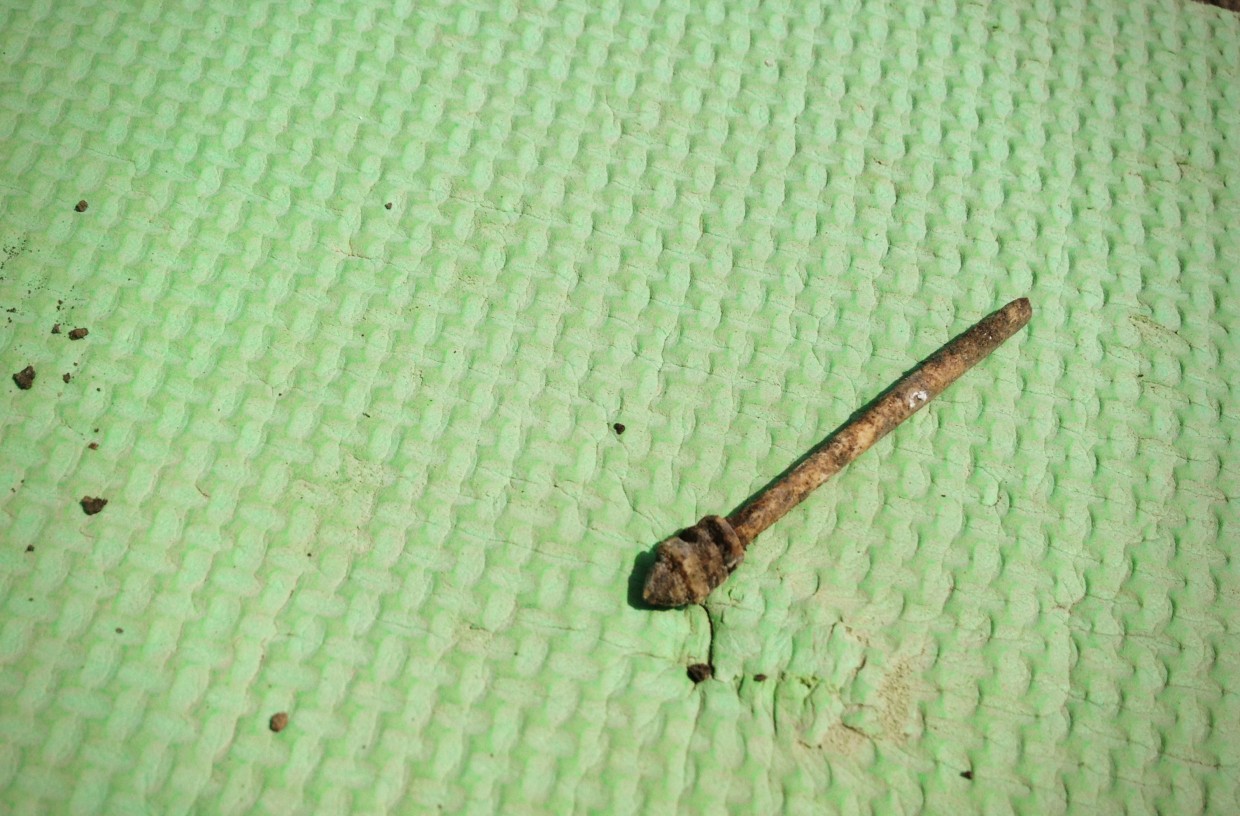
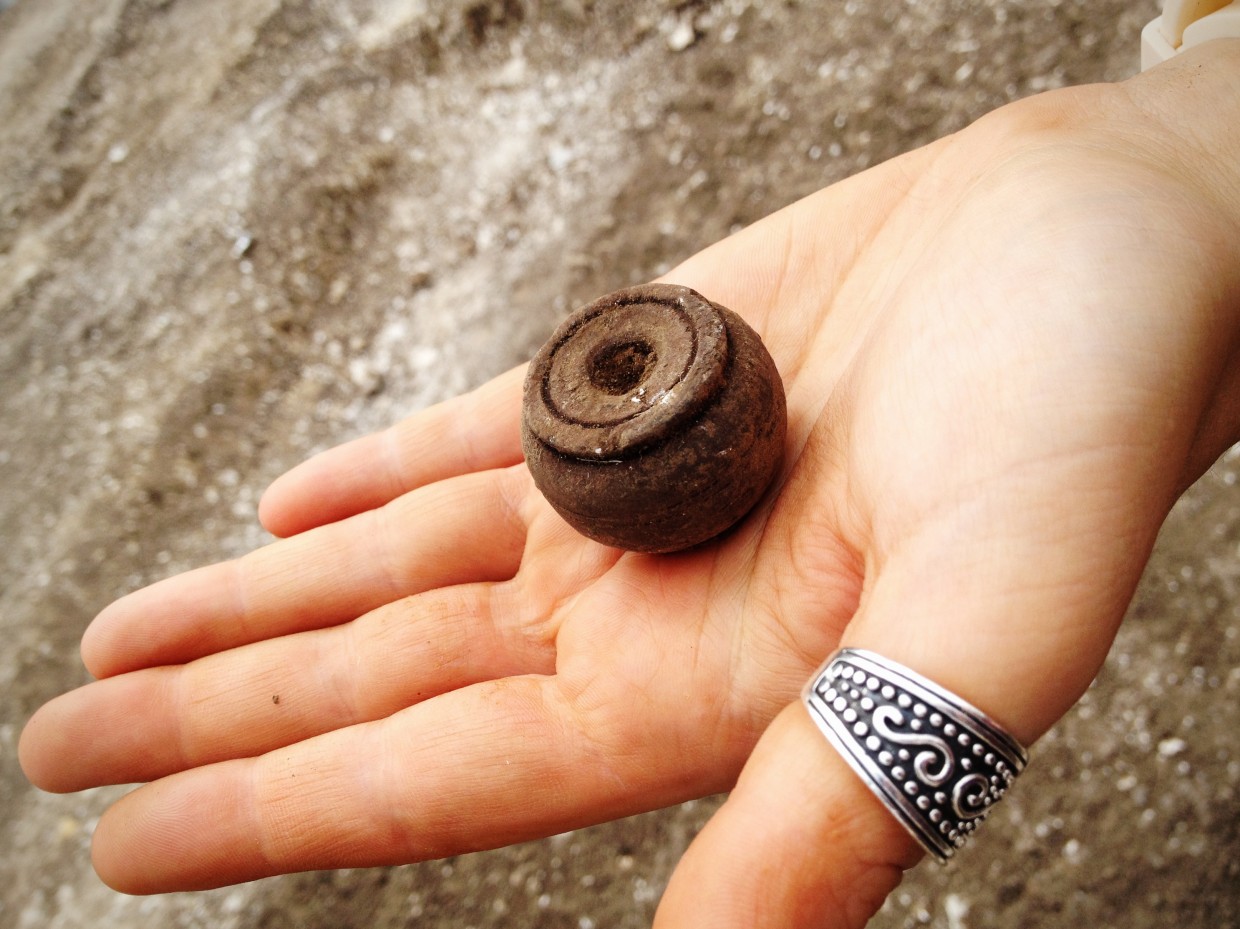
[one-half-first]
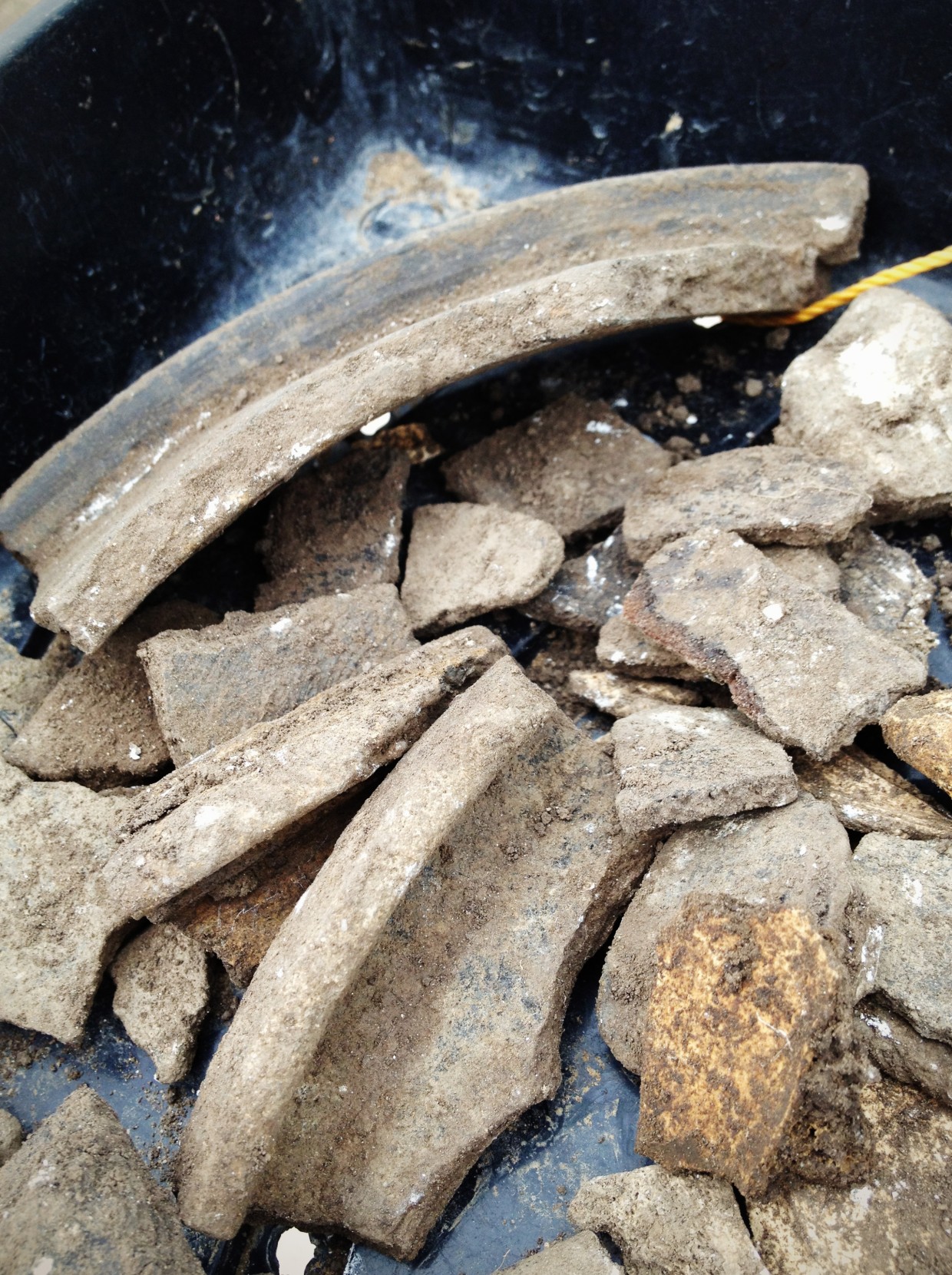
[/one-half-first]
[one-half]
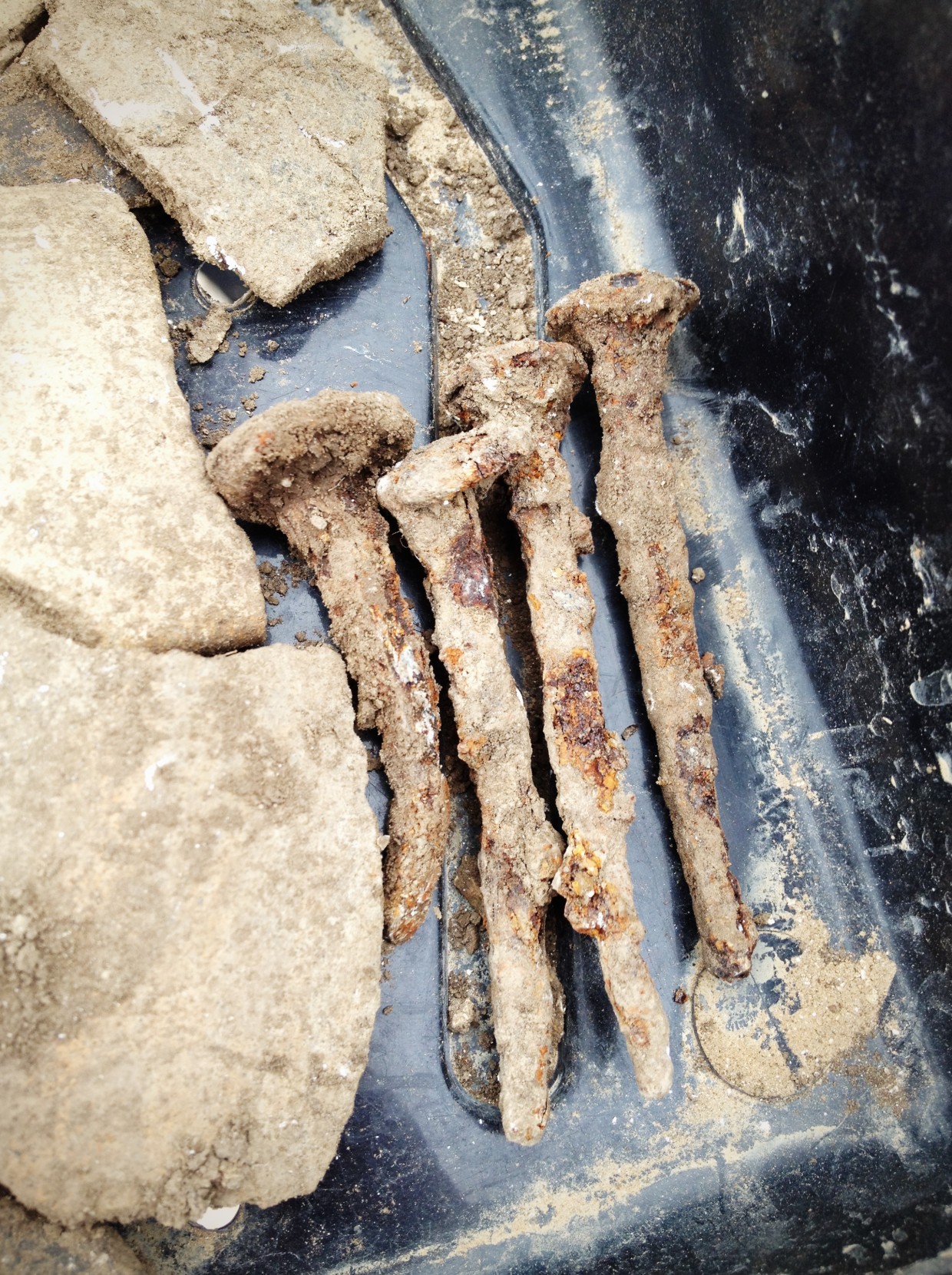
[/one-half]
One of the volunteers found an interesting collection of stones, which had to be measured, drawn and photographed. They even gave him the opportunity to draw the stones.
If someone found something significant, such as an animal skull, or even human remains, the supervisors wouldn’t take the volunteer or student off the task, but instead the student was allowed to expose the item (with supervision if necessary). I thought this was a great approach by the university, and the students (and me as a volunteer) were able to learn a significant amount and gain valuable experience.
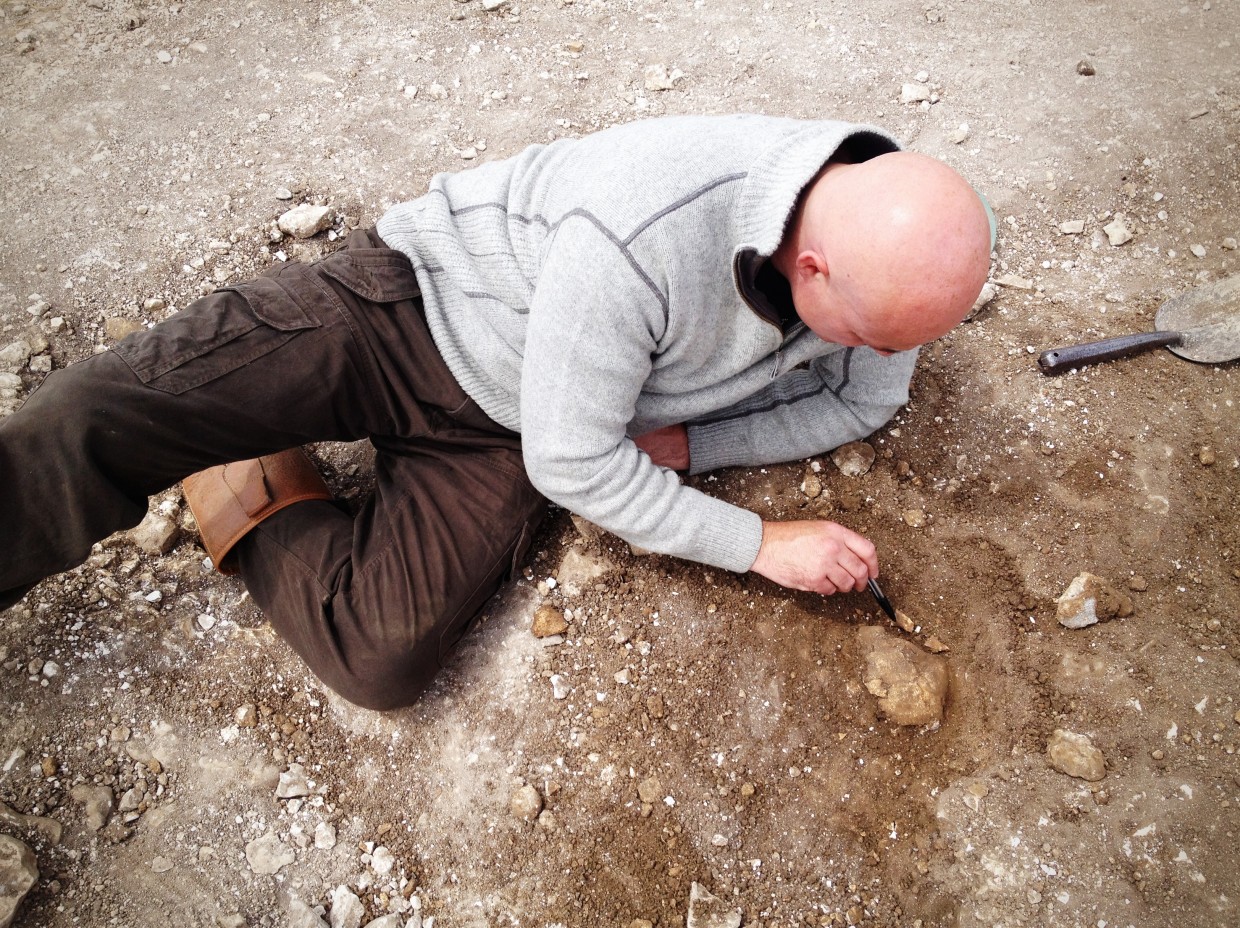
At the end of the week, everyone was gathered around the site supervisor, who summarised the week; talking about which interesting finds were uncovered, if the speculations about certain areas had changed, what was going to happen next…
This experience was a dream come true and I’m so grateful to Bournemouth University for giving me (and my sister) the opportunity to join as volunteers, and it’s only made me want to join more archaeological digs. I would love to pursue this passion of mine and hopefully even specialise in Bio-archaeology (or Osteology).
Information For If You Want To Join An Archaeological Dig
> It’s fairly easy to join an archaeological dig as a volunteer because you don’t need any previous experience or a degree.
> There are digs where you can join for free, but you’ll need to pay a fee for most digs.
> Some digs you can join for a weekend, others ask a minimum of a week, and others require you to join for at least 4 weeks.
> If you have a specific skill-set (say digital artist or photographer), you might be able to join a dig for free or receive a discount on the fee.
> All tools will be provided on site, but you can bring your own trowel, and I would recommend bringing garden gloves.
> I found if you go through an American organisation, the fees are very steep, so keep looking around as there are cheaper opportunities out there.
Useful Links
Volunteering opportunities
Specific digs
Share
Lies
Hi! I'm a Belgian travel blogger currently living in Vancouver, Canada after living in the UK for 7 years. I have a keen interest in responsible travel, volunteering and archaeology and I'm always on the lookout for new adventures around the world!
Explore More
- // Explore England, Experiences
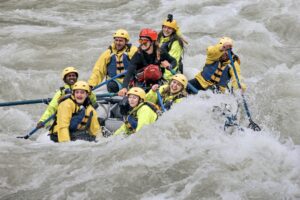
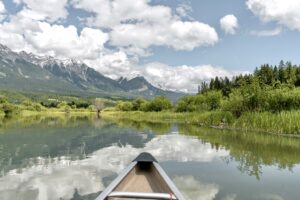
12 Responses
wow what a cool experience that most people would never think of doing! Thanks for sharing 🙂
I only realised a few years ago you could do something like this! I’m hoping to sign up to a few more in the future.
Oh, I’d simply LOVE to do something like that!!!!
http://www.therussianabroad.com
It’s a lot of fun, but also incredibly interesting. You never know what you might uncover, and it’s always exciting when you do find something that could be valuable/significant.
This is actually so cool. I have never read a blog post regarding such an experience before! I would really really enjoy doing something like this! What unique memories it would provide! 🙂
I’m hoping to write more about volunteering at a dig in the future, and join a few more digs as well. I was surprised when I couldn’t find much about it online. There’s plenty of info about digs where you can volunteer, but never personal accounts of someone actually volunteering. I’m hoping to change that!
What a fantastic experience. I also wanted to be an archaeologist growing up – ended up doing a history degree and have always loved history, but never done anything like this (I didn’t know it was possible). Brilliant.
This is so cool!! I am going to start traveling more and looking into cool volunteer ideas 😉
I had no idea you could do something like this, I’d always assumed people working on digs were trained/had experience etc.
It does sound really interesting though, I’d definitely give it a go for a weekend – not sure my knees would last a week though hehe.
This sounds like a very cool experience! And good to know you can do it as an amatuer as well! A perfect way to combine a holiday and do something so interesting. Great pictures with lots ofuseful information for anyone else thinking of doing something like this, thanks for sharing 🙂
Wow! That is an amazing story. It seems so interesting everything you did there, you know, discovering all those old but wonderful things! Although archeology its not my favorite section, I hope someday I can volunteers in some beautiful project. Thanks for the information! Have a nice day,
Vera
The Flash Window | Bloglovin
When i was a child i always wanted to be come an archeologist! (okay..might have been a couple of other professions in the mix).
this seems such a cool way to spend a holiday. I find it weird, however, that you actually need to pay a fee? why is that? I mean, you are helping for free after all!